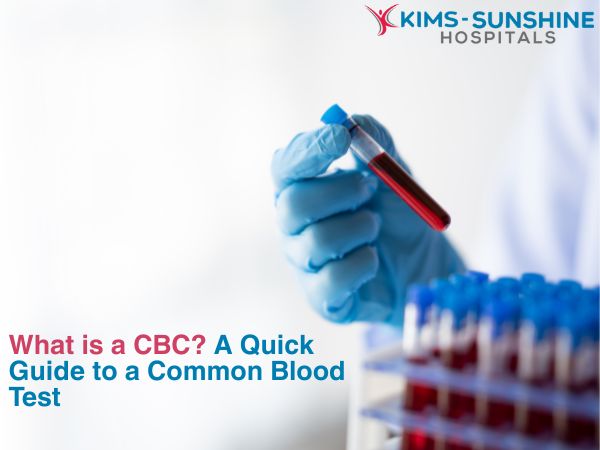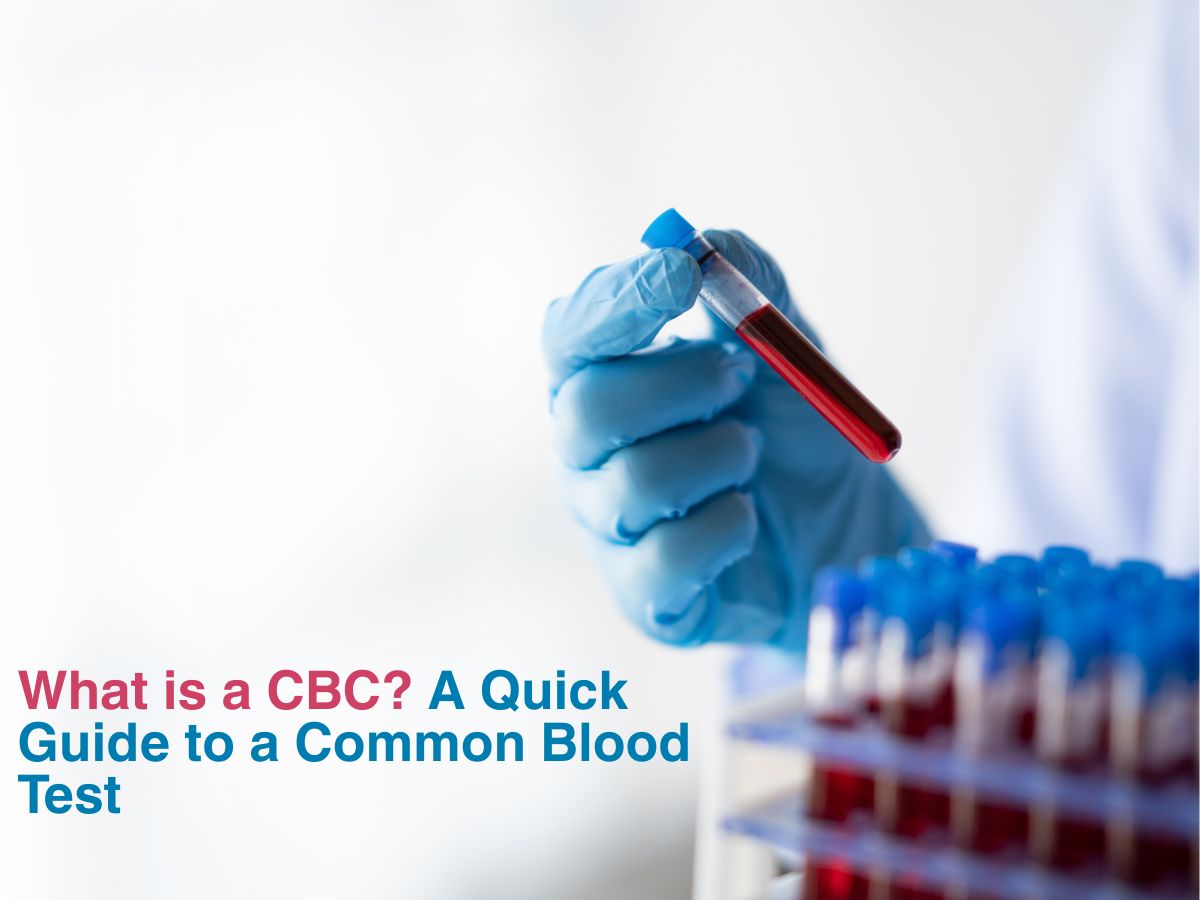
What is a CBC? A Quick Guide to a Common Blood Test

CBC stands for Complete Blood Count. It is a blood test which measures the total amount and size of your red blood cells (RBCs), white blood cells (WBCs), platelets, and hemoglobin levels. The next question that comes to mind is- So, what is a CBC test used for? Your healthcare provider may call for a CBC test to be done to monitor and diagnose medical conditions and also assess the health of your immune system. An abnormal CBC result may indicate infections, anemia, or even cancer!
Complete blood count test explained simply
In a CBC test, the following parameters are assessed for RBCs:
- RBC count: It gives the number of red blood cells in a microliter (mcL) of blood.
- Hemoglobin levels: It specifies the hemoglobin levels in the blood.
- Hematocrit: It denotes the percentage of RBCs present in blood.
Other than the above parameters, there are certain measures which describe the size of your RBCs and hemoglobin content in the blood.
- Mean corpuscular volume (MCV): It gives the average size of RBCs.
- Mean corpuscular hemoglobin (MCH): It is the average concentration of hemoglobin in each RBC.
- Mean corpuscular hemoglobin concentration (MCHC): It is the average weight of hemoglobin in a certain amount of blood.
- Red cell distribution width (RDW): It denotes the degree of difference in RBC size. A higher number indicates there’s a large difference between your largest and smallest RBC size. On the other hand, a low number means all the red blood cells are nearly of the same size.
Other parameters include:
A. Parameters for White blood cells (WBCs):
- White blood cell count (WBC): It gives a count of the total white blood cells in the blood. It includes neutrophils, monocytes, lymphocytes, eosinophils, basophils, immature granulocytes, and nucleated red blood cells (nRBC).
- Platelet count: It gives the total number of platelets in your blood sample.
- Mean platelet volume (MPV): It gives the average size of the blood platelets.
What is the normal range in CBC test
The normal range for each of the parameters assessed in a CBC test is given as under:
(i) RBC Count: Male: 4.35-5.65 trillion cells/L
Female: 3.92-5.13 trillion cells/L
(ii) Hemoglobin: Male: 13.2-16.6 grams/dL
Female: 11.6-15 grams/dL
(iii) Hematocrit: Male: 38.3%- 48.6%
Female: 35.5%- 44.9%
(iv) White blood cell count: 3.4-9.6 billion cells/L
(v) Platelet count: Male: 135-317 billion/L
Female: 157-371 billion/L
Is fasting required for a CBC test?
No, you are not required to fast before undergoing a CBC test. You can take food and water as you normally do and even take your regular medicines. However, if your healthcare provider has asked for samples for other blood tests, you may have to follow instructions accordingly.
How to understand CBC test results
The above mentioned values represent a normal condition. If the count is lower or higher than the given values, it indicates certain underlying health conditions.
- High RBC count: It may be caused due to certain heart and lung conditions, poly cythemia vera, or sleep apnea.
- Low RBC count: It may indicate anemia (Iron deficiency) or other nutritional deficiencies such as B12 deficiency, blood loss/bleeding, blood and bone marrow disorders, and low kidney function.
- High WBC count: High white blood cell count may be due to infections, allergic reactions, lymphoma, leukemia, and autoimmune conditions.
- Low WBC count: Low WBC count may be caused by bone marrow disorders and infections, certain autoimmune diseases, and medications.
- High Platelet count: Its causes may include infections and immune system anomalies.
- Low Platelet count: Causes include certain cancers, immune thrombocytopenia, and hemolytic uremic syndrome.
CBC blood test is often done for infection detection. Abnormal results may also indicate serious problems such as cancer. It is, thus, important to undergo CBC test regularly to detect any underlying health issues.






